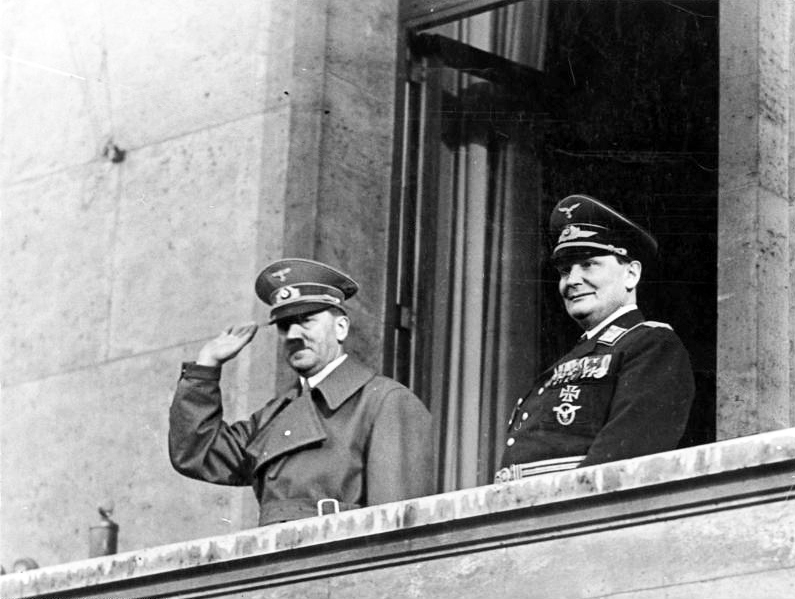New book exposes dark Nazi history behind Germany’s richest dynasties who bought stakes in major brands like Snapple, Krispy Kreme and Panera Bread
06/03/2022 / By JD Heyes

Some of Germany’s wealthiest societal dynasties amassed their riches during Adolph Hitler’s reign of terror and then used those fortunes to buy up shares in some of today’s biggest companies, according to a new book.
“Nazi Billionaires” by investigative journalist David de Jong unveils the dark histories behind the manner in which Germany’s most affluent families — the Quandts, the Flicks, the von Fincks, the Porsche-Piechs — amassed their fortunes and power, mostly by enabling Hitler’s murderous Third Reich. In addition, de Jong’s book also charts how the families’ lasting wealth has led to positions of influence among several of the world’s most enduring and biggest brands.
“Their legacy lies in ubiquitous consumer goods and car brands beloved around the world like BMW, Mercedes Benz, Porsche, and Volkswagen, Audi, Lamborghini and Rolls-Royce,” the UK’s Daily Mail reports. “The ultra-secretive Reimann family owns the majority stake in companies like: Snapple, Dr Pepper, Krispy Kreme doughnuts, Peet’s Coffee, Einstein Bros. Bagels, Stumptown Coffee Roasters, Keurig Green Mountain, Panera Bread, and Pret A Manger. They also have their foot firmly in the luxury fashion market with Bally and Jimmy Choo.”
The book also reveals that the Oetker empire also takes in the country’s biggest beer brewer, Radeberger, and reveals a portfolio of the globe’s most exclusive luxury hotels such as Hotel de Cap- Eden- Roc, Le Bristol Paris, and The Brenners Park Spa Hotel in Baden-Baden, Germany.
The report adds:
The book details how a few opportunistic tycoons enriched themselves on corruption, cruelty, and the spoils of virulent anti-Semitism. They expanded their empires by forcibly taking over Jewish-owned assets in a process known as ‘Aryanization’ and increased profit margins through free slave labor from concentration camps.
In the years since World War II, these elusive German families have ignored their associations to the companies that armed and fed Nazi soldiers, but their service to Hitler’s cause continues to afford a life of luxury for their beneficiaries today with castles, boats, private jets, ski chalets, and expensive art.
In Germany, which is widely viewed as a country noted for being a paragon of contrition and remembrance, the names of these dynasties continue to adorn buildings and are associated with foundations, prizes and scholarships.
“I am a capitalist,” declared Verena Bahslen, 26, the heiress of a biscuit empire, in May 2019. “I own a quarter of Bahlsen and I am happy about it too. It should continue to belong to me. I want to make money and buy sailing yachts from my dividend and stuff.”
Adding to the insulting tone is a claim by Bahlsen that her company did not have anything at all to be ashamed about, as during Hitler’s reign “we paid forced laborers the same as Germans and treated them well.”
But de Jong noted that Bahslen is but one of several German scions who “sidestep a complete reckoning with the dark history that stains their fortunes.”
“War was lucrative for Germany’s industrial bosses who got financially fat underpinning the Third Reich,” the Daily Mail reported. “Günther Quandt was Germany’s most important arms and ammunition manufacturer, Friedrich Flick controlled the largest steel, coal and artillery conglomerate, [while] Albert Reimann bragged in a letter to Heinrich Himmler, that his chemicals company was ‘a purely Aryan family business that is over 100 years old.'”
Following Germany’s defeat in World War I, the victorious allies imposed a combination of humiliating conditions on Germany that include war reparations and strict limits on the size of the country’s military. That led to a wave of political and economic discontent that Hitler rode to the chancellorship in 1933.
In the years beforehand, he made inroads with Germany’s wealthiest families and businessmen in a bid to promote and shore up the Nazi party. The companies would keep their operating costs low by ’employing’ forced laborers from the concentration camps to feed the endless demand for supplies, munitions, uniforms, food and of course, weapons.
“Decades later, their service to Hitler’s cause continues to afford the lap of luxury for their beneficiaries today with boats, private jets, ski chalets, expensive art collections and homes around the world,” the Daily Mail reports, citing de Jong’s well-researched book.
Sources include:
Submit a correction >>
Tagged Under:
Adolph Hitler, billionaires, brands, corporations, evil, forced labor, German billionaires, Germany, immense wealth, investments, Nazi, Nazi Billionaires, Nazi Germany, Nazi Party, police state, real history, Third Reich, wealth, world war I
This article may contain statements that reflect the opinion of the author
RECENT NEWS & ARTICLES
COPYRIGHT © 2017 INSANITY NEWS




















